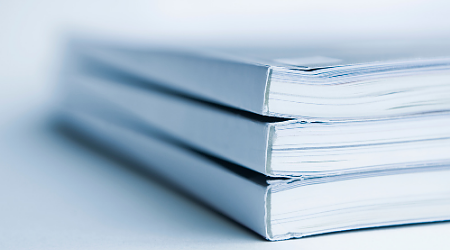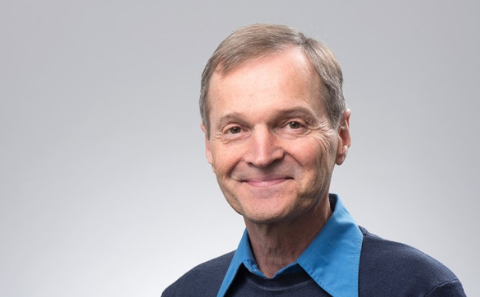SPEISER Lab
- : -
Pr Daniel Speiser retired in August 2020 and was made Honorary professor of the University of Lausanne.
- : -
Focus of Speiser Lab
Regulatory mechanisms of T cell responses against infections and cancer, with special focus on T cell dysfunction (“exhaustion”) in the tumor microenvironment. Development of novel therapies against cancer, based on vaccines, checkpoint inhibitors and adoptive T cell transfer. Resistance mechanisms to cancer therapy, and strategies to avoid resistance.
Projects of Speiser Lab
Competence of intratumoral T cells, identification of novel conserved mechanisms of immune resistance, and new oncogenic drivers in human melanoma (e.g. specific MEK1/2 mutations)
We found that multiple escape pathways to oncogene (mutated BRAF) inhibition may be operational even within individual patients. Of high clinical relevance is our suggestion that escape may be less challenging with immunotherapy, likely because the latter can be designed to target large numbers of antigens, but also because of our new findings. We recently published a pioneering study revealing that the so-called adaptive resistance mechanisms are very broad and surprisingly conserved among melanoma patients. Finally, by studying T cell biology, we obtained solid evidence that intratumoral T cells have considerable functional competences, despite displaying functional deficits. In summary, our strategy is to generate extraordinarily broad and detailed data from the melanoma patient’s tumor and immune biology. The results allow detailed characterizing of the therapy effects, on which design novel combination therapies are then based, with high potential for clinical efficacy and with limited toxicity.
Investigator initiated clinical phase I/II trials of T cell vaccination and combinations with other therapies
We assess biological and clinical efficacy of novel immunotherapies, with the aim of identifying immune stimulating substances that are most efficient in the generation of strong immune responses against cancer. We are applying novel forms of antigen (short and long peptides, virus-like particles), “adjuvanted” by different types of CpGs, MPL, QS21, p40, or a soluble LAG3-Ig fusion protein. We developed and are applying the as yet most powerful existing synthetic human T cell vaccine, composed of short peptide antigens, CpGs and Incomplete Freund Adjuvants. This vaccine induces circulating cancer/self-specific CD8 T cells that are highly competent in vivo, multifunctional, and show effector cell differentiation similar to virus specific T cells. More recently, we were also the first to demonstrate that vaccination with long synthetic peptides and CpG induce very powerful CD4 and CD8 T-cell responses in cancer patients, on our way to steadily improve immunotherapies against cancer.
Characterization of human T cells directly “ex vivo”, and at the single cell level (collaboration with Pr Nathalie Rufer's group)
We found that optimal immunization of cancer patients induced effector T cell differentiation in conjunction with marked expansion of co-dominant T cell clonotypes, expressing T cell receptors (TCRs) with increased avidity. Interestingly, vaccination with a “weak” natural tumor/self peptide induced T cells with stronger tumor reactivity (higher TCR avidity and stronger T cell activation) than vaccination with a heteroclitic analog peptide, despite the enhanced HLA binding of the latter. These findings further emphasize the great need to generate T cell responses with high affinity TCRs to tumor/self antigens, a major challenge that is likely decisive for the future success of T cell based therapy of cancer. Encouraging conclusions can be drawn from our studies of long-term T cell activity. Astonishingly, repetitive vaccinations induced sustained T cell responses with continuously functional effector T cells, and persistence of co-dominant clonotypes over many years. Finally, vaccination induced sizeable T cell responses not only in young but also in older patients (60 – 80 years).
Mechanisms of inhibitory pathways relevant for cancer specific T cells
We characterize inhibition of tumor specific T cells. One of our findings has shown that T cell responses can be attenuated when the CD28 family member BTLA (B and T lymphocyte attenuator) interacts with its ligand HVEM (herpes virus entry mediator) that is expressed by tumor cells in situ. Interestingly, immunotherapy with CpG-based vaccines but not other vaccines induced BTLA downregulation and thus makes T cells in part resistant to this inhibition 1.
1. Derré L., J.P. Rivals, C. Jandus, S. Pastor, D. Rimoldi, P. Romero, O. Michielin, D. Olive and D.E. Speiser. BTLA mediates inhibition of human tumor-specific CD8 T-cells that can be partially reversed by vaccination. Journal of Clinical Investigation 2010. 120:157-167
Mechanisms of immune responses in humans immunized with the yellow fever vaccine YF-17D
This is the most powerful among the currently available clinical T cell vaccines. It is an ideal model situation to probe diverse aspects of the human immune systems. We test specific hypotheses, but also use systems biology approaches to identify those innate immune activation pathways that are optimally mobilizing antigen-specific lymphocytes. One of our results is the discovery of very long term stable maintenance of stem cell-like memory CD8 T-cells 1,2. The results of these studies are highly useful, for example to decide whether a vaccine should include stimulators of various Toll-like, NOD-like, and/or RIG-I-like receptors.
1. Fuertes Marraco S.A. et al, D.E. Speiser. Long-lasting memory CD8 T-cells with highest “Naiveness” upon Yellow Fever vaccination in humans. Science Translational Medicine 2015. 7, 282ra48
2. Gattinoni L., D.E. Speiser, M. Lichterfeld and C. Bonini. T memory stem cells in health and disease: new insights and therapeutic opportunities. Nature Medicine 2017. 23:18-27
KEY PUBLICATIONS

- Neubert N.J., L. Tille, D. Barras, C. Soneson, P. Baumgaertner, D. Rimoldi, D. Gfeller, M. Delorenzi, S.A. Fuertes Marraco and D.E. Speiser. Broad and conserved immune regulation by genetically heterogeneous melanoma cells. Cancer Research 2017. 77:1623-1636.
- Speiser D.E. and G. Verdeil. More T cells versus better T cells in breast cancer patients. Cancer Discovery 2017. 7:1062-1064.
- Neubert N.J.*, M. Schmittnaegel*, N. Bordry*, S. Nassiri, N. Wald, C. Martignier, L. Tillé, K. Homicsko, W. Damsky, H. Maby El-Hajjami, I. Klaman, E. Danenberg, K. Ioannidou, L. Kandalaft, G. Coukos, S. Hoves, C.H. Ries, S.A. Fuertes Marraco, P.G. Foukas, M. De Palma* and D.E. Speiser*(*equal contributions). T cell-induced CSF1 promotes melanoma resistance to PD1 blockade. Science Translational Medicine 2018. Apr 11;10(436). pii: eaan3311. doi: 10.1126/ scitranslmed.aan3311.




